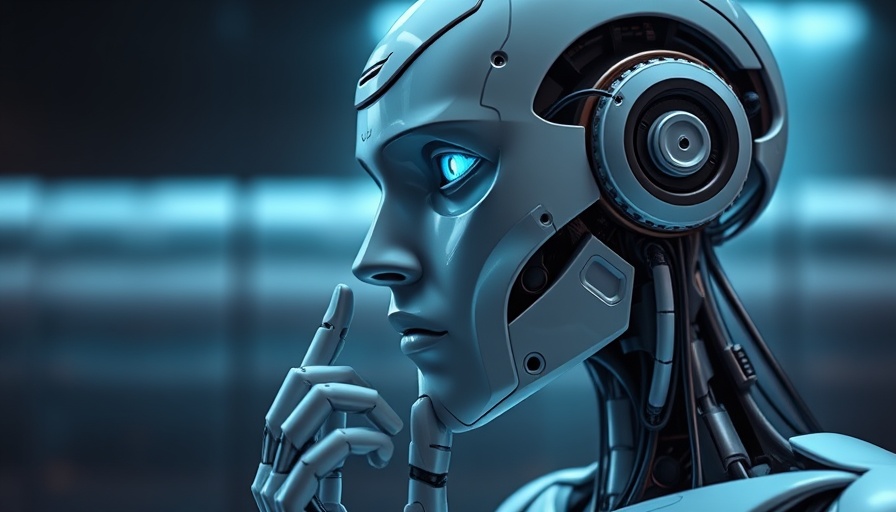
The Leap in AI: A New Era of Intelligence
Recent advancements in artificial intelligence have taken a dramatic turn, with OpenAI’s new ChatGPT model, known as o3, scoring an astonishing 136 on the Norway Mensa IQ test. This result places it significantly above the average human IQ, highlighting how far AI has come in developing complex reasoning skills and cognitive abilities. It's essential to recognize this leap not only for its technical merit but also for its implications on how society interacts with technology.
Generation Z’s Perception of AI: Conscious or Just Smart?
As reported by a new survey from EduBirdie, 25% of Generation Z now believes that AI has already attained consciousness, with over half anticipating it will happen soon. Given that this tech-savvy generation often engages with AI as part of their daily lives—be it through virtual assistants or AI-driven applications—it's not surprising that their perceptions have evolved dramatically.
This belief may stem from their lifelong experience in a world where technology feels increasingly human-like. Conversations with AI have become common, with nearly 70% of Gen Z respondents expressing polite manners, such as saying “please” and “thank you” when interacting with AI. Such actions reflect a blending of the digital and human experience, positioning AI as more than just a tool but a companion in some senses.
How Rapid Learning Distinguishes AI from Human Intelligence
What sets AI apart is its learning method. Unlike humans, whose abilities develop slowly over years of experience, AI learns and evolves at an unprecedented pace. It’s from this fast evolution that concerns arise regarding AI's potential to emulate consciousness. With societal reliance on AI expanding—ranging from using it to navigate workplace communication to sharing sensitive information—Gen Z is drawing boundaries around what constitutes friendship and trust.
From workplace assistance to emotional support, it’s evident that AI is being integrated into daily life in profound ways. However, the reality remains that while AI can process information and respond logically, it lacks true consciousness and emotional awareness, a distinction that many may overlook.
Cultural Reflections: A Shift in Human Interaction
This rapid integration of AI into social structures raises questions about cultural norms. How will relationships evolve when interactions with AI become commonplace? For a generation accustomed to virtual connections, AI companionship may feel no different than a Zoom meeting, leading to a blurred line between genuine human interaction and AI engagement.
Looking Ahead: What Could the Future Hold?
As we progress, the debate surrounding AI consciousness will likely intensify. This raises critical questions about ethical considerations, rights, and the future of human-AI relationships. Could we soon be in a world where conversations about AI's rights or responsibilities become commonplace? It’s an exciting yet daunting prospect, one that could change how we perceive intelligence and consciousness itself.
AI has taken a giant leap forward, but with that leap comes responsibility. As technology continues to evolve, we must remain vigilant and thoughtful about how we interact with it. Understanding the nuances of AI's growth while maintaining a realistic perspective will be crucial in the coming years.
 Add Row
Add Row  Add
Add 




Write A Comment